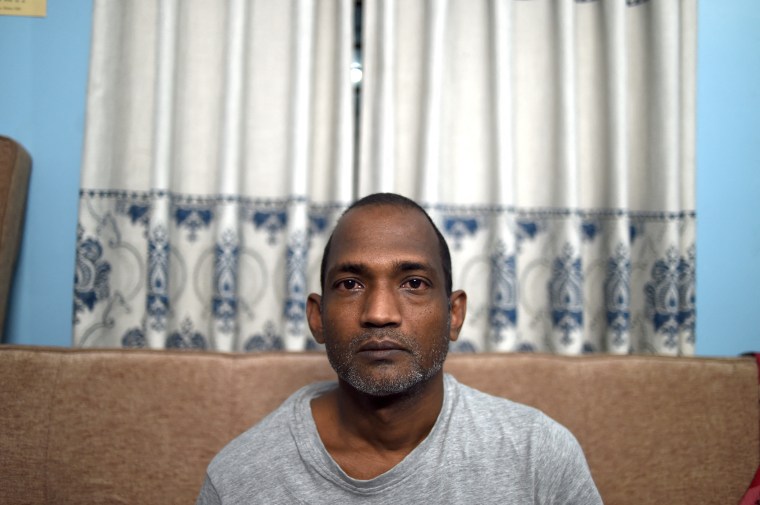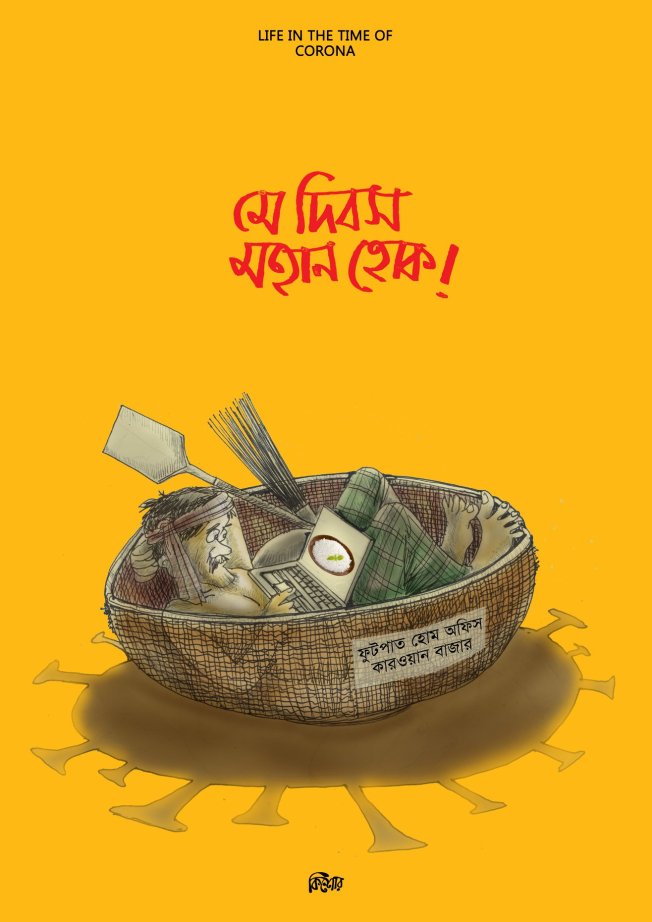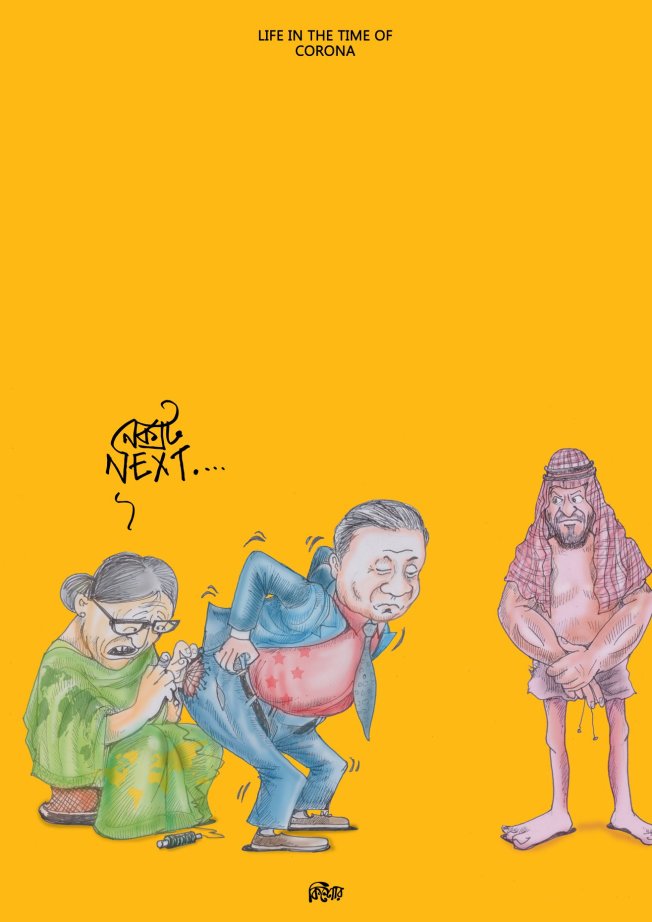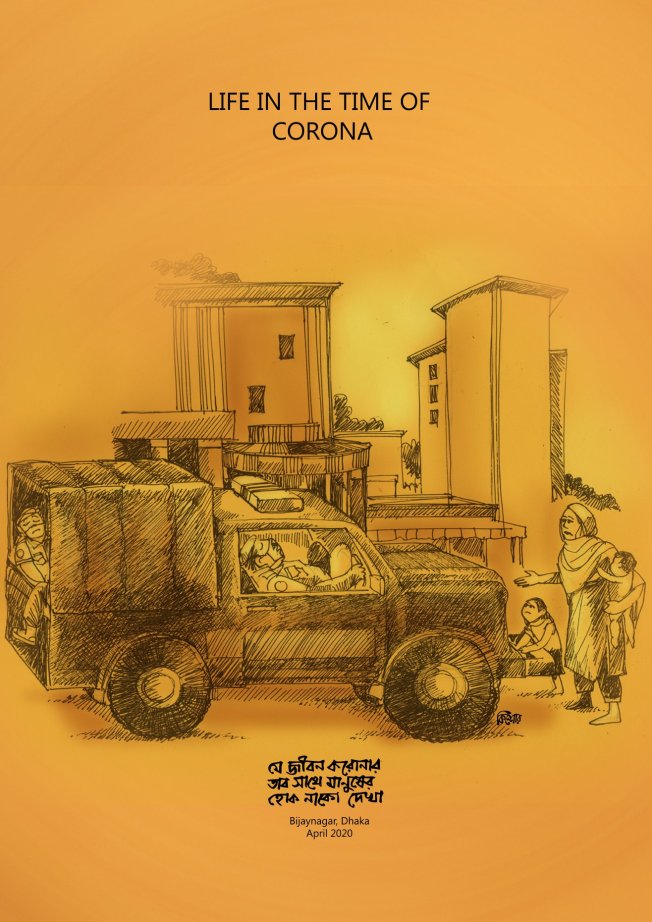Bangladeshi cartoonist Kabir Kishore’s first stop after he was released from prison on March 4 after 10 months in custody was the hospital, where he was treated for a burst eardrum, leg injuries, diabetes, and other ailments after being taken from his home, jailed, and allegedly tortured.
Days before his release, his colleague Mushtaq Ahmed, a co-accused in the case against Kishore, died in custody, as CPJ documented. Ahmed was a writer who had criticized the government’s handling of the coronavirus pandemic.
Kishore, who was released on bail, filed an anti-torture case in a Dhaka court; the court has ordered a probe into the allegations. According to news reports, authorities have denied that the cartoonist was tortured.
Kishore was arrested in May and accused of violating the Digital Security Act by allegedly “spreading rumors and misinformation on Facebook about the coronavirus situation,” according to CPJ research. A police complaint alleged that Kishore and other journalists ran the popular Facebook page “I am Bangladeshi” which police said tarnished the image of the country. The complaint also mentioned cartoons from a series Kishore posted on his personal Facebook page, “Life in the Time of Corona.” Kishore still faces charges.
The Digital Security Act is a law intended to fight cybercrime that has been used to target critical journalists in Bangladesh. CPJ has repeatedly called on the Bangladesh government to repeal the law.
Kishore spoke with CPJ over the phone after his release about his work, detention, and alleged torture. It is not possible for CPJ to independently verify his account, but it is in line with details of abuse in custody in Bangladesh previously documented by CPJ. CPJ’s call and email to the Rapid Action Battalion police unit, which filed the complaint that led to Kishore’s arrest, were not returned. CPJ also emailed Bangladesh’s prison headquarters and the Bangladesh prime minister’s office for comment but did not receive replies.
This interview has been edited for length and clarity.
How did you get started in cartoons?
My father was also an artist, he taught us a lot of things and my older brother also taught me how to draw. Since I was a child, I loved drawing pictures and cartoons. I used to copy cartoon characters, like Mickey Mouse and Tintin.
What led to your arrest?
I was a freelancer during the coronavirus pandemic. I was inspired by many writers who wrote during times of pandemic or famine and I tried to portray in my work what was happening. I focused on the national and international news of coronavirus. At the time people were dying while they were on their way to the hospital. I used to draw cartoons all day until I fell asleep.
Did you receive any threats prior to your arrest? Did you ever think you might be arrested for your work?
I’m one of the first political cartoonists who was disappeared and arrested through the Digital Security Act since Bangladesh’s independence. I was disappeared, tortured, and then imprisoned.
I received some threats on blogs that said my work was too negative. But I was just portraying the real consequences. I’m not biased, all my cartoons are reality.
What is the impact of the Digital Security Act on the press in Bangladesh?
When all the media houses are under pressure, people have found freedom through their digital devices. If you harass people for cartoons, for art, you are controlling people, the rights of people.
If you go through the case studies of who is accused under the Digital Security Act and who benefits from it, you will find a very big differentiation. The government guys are benefitting from this act. The government is employing this act for revenge, that if you exercise your freedom of speech, you will be followed and booked under the Digital Security Act and punished. It is helping the government guys who are corrupt. If you complain or post a [Facebook] status against them, you will be booked.
What happened when you were detained?
On May 2, around 5:45 p.m., around six men in civilian clothes came to my home in the evening and forced their way in, breaking the door and locks, while I was napping. They told me to get dressed and started going through my things and collecting my devices. More men kept coming, altogether there were 17 or 18 men. I kept asking who they were and why they were there. I was shouting and people were gathering outside of my house. My devices were taken. A lot of my work is on those drives that are still being held. I asked if they had a warrant and if I was being arrested. They threatened me and insulted me and told me to follow their orders.
They put a blindfold over my eyes and handcuffed me and took me away in a car. I was on the road for around 42 or 43 minutes, I was counting the seconds and trying to memorize the turns. Then they took me inside a building and a room that was a dump, it had a bad smell of petrol and they kept me in there for six hours. When I tried to lift the blindfold, some men entered the room and started beating me. They threatened me that if I did it again the punishment would be worse and they moved my handcuffs behind my back.
After another six hours, they took me to another room, which was air-conditioned. It smelled of cigarette smoke. They started showing my cartoons on a screen and questioning me, asking “Why did you draw this cartoon? Who is this guy?” about a corrupt man I had drawn. They started beating me.
Then they showed the “Mother Nature” cartoon [of a woman mending the pants of Chinese president Xi Jinping while Saudi Crown Prince Muhammed bin Salman waits in line] and asked why I portrayed [Bangladeshi Prime Minister] Sheikh Hasina. I said it was not her, it was supposed to be Mother Nature. They kept interrogating me and insulting me and threatening me, asking why I drew the prime minister. They showed another cartoon and asked why I drew [former president] Sheikh Mujibur Rahman. I insulted them and then they started beating my head and something hit me in my right ear, and I felt severe pain and something hot dropping from my ear. They kept beating me and interrogating me for two more hours but after that I could not answer. I cried and started shouting. They beat me again.
When I was taken to the restroom, I saw blood on my shirt and saw fresh blood on the floor of the toilet, meaning that someone else had been tortured too.
They asked me more questions about journalists Tasneem Khalil and David Bergman [who have faced investigations and legal harassment, respectively, by Bangladeshi authorities] and why I was friends with them on Facebook and why I chatted with them. I was in severe pain.
On the evening of May 5, I saw Mushtaq [Ahmed] bhai [brother] and we were both handed over to the Rapid Action Battalion in Khilgaon. I was in bad shape and Mushtaq bhai held me up, told me to smile, that we had not done anything wrong so to be confident.
Later, Mushtaq bhai told me he was tortured by electric shock. At that time, we could hear other people being tortured in a nearby room. When we left, we could see blood, feces, and dirty water on the ground.
What was your time in prison like? You were there for nearly 10 months.
Mushtaq and I were transferred to Keraniganj Central Jail and we were placed in 15 days quarantine together in a six by eight feet room with five others. One had bronchitis and we thought we would die.
During quarantine we could not leave our cell and I used to draw cartoons and sketches on cigarette packets. I had to beg for and smuggle a pen. I made light and humorous drawings while I was there so that the jailers could not understand my drawings. My sketchbook was seized but I hope to get it back. It will show a documentation of prison life.
After quarantine Mushtaq and I were not in the same cell anymore, but we were in the same ward and sometimes we would be able to walk together.
How did you hear about his death?
I had been admitted to the hospital and I was sleeping. One of the patients used to receive the Bangla national paper Daily Jugantor. He woke me up and showed me the news about Mushtaq’s death. I started crying and lost control of myself. Can we end the interview here?
I’m very sorry – I understand it’s difficult to speak about this further. Let’s talk about the future. What is next for you?
I will return to my work and continuing fighting these cases.



